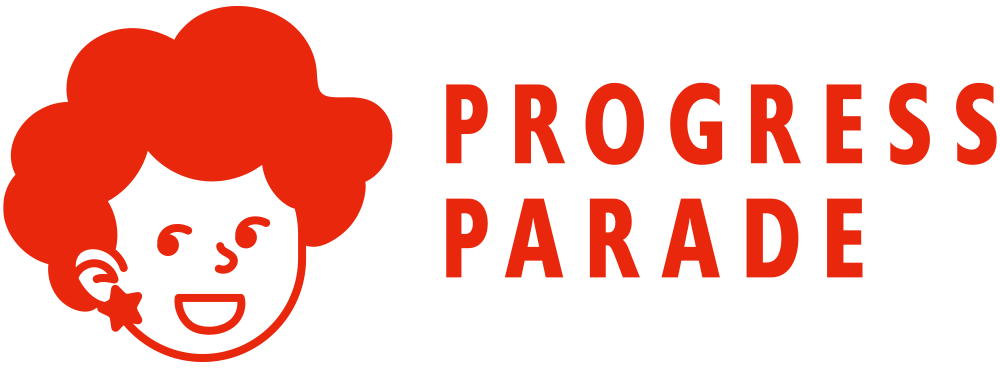Best practices in setting goals for neurodiverse (and neurotypical) students
Last week we talked about a common goal parents have for tutoring: building their child's self-confidence around academics. In our opening paragraph, we discussed different types of goals parents have when they contact us about educational therapy or special education tutoring.
We think now particularly (January) is a great time to talk about goal setting since many people are setting their goals for the new year. You'll notice that the title of this article is "Best practices in setting goals for neurodiverse (and neurotypical) students". Here at Progress Parade, our specialty is diverse learners, but these best practices really do apply to most people. There are exceptions to every rule, but these are great general principles to keep in mind when goal setting! You may have heard the term SMART goals. Making SMART goals is a great place to start with goal setting and it's what we'll be discussing today. SMART goals are:
Specific
Measurable
Achievable
Relevant
Time-based
We're going to talk about each of these aspects with examples relevant to special education tutoring and educational therapy.
“We think now particularly (January) is a great time to talk about goal setting since many people are setting their goals for the new year. ”
Specific
Specific goals help you really hone in on what you want to accomplish. General goals tend to be less motivating because they are harder to picture. It's also harder to know whether you've accomplished a general goal because often they are very broad and vague. When it comes to special education tutoring, which of the following is more exciting and motivating?
My student improves at school.
My student has learned to choose appropriate books at their level and can read them independently.
The second goal is more specific and it lets you actually picture what your child will be able to do when they accomplish their goal. They'll have a world of information at their fingers as now they can not only choose books that they'll be able to read but they can read them, too! You'll know when you've identified a specific goal because you'll be able to picture exactly what achieving that goal looks like.
Measurable
You will see that many of these categories interrelate. Often, more specific goals are more measurable. Measurable goals allow you to stay motivated and really give you a way of knowing whether you're reaching your goal. Last week, when we talked about the goal of building self-confidence, we discussed that one challenge with the goal is that it's difficult to measure. Which of the following goals is more measurable?
Increase my child's self-confidence.
Provide a lot of instruction and praise, so that my child gets a passing grade for the first time this school year.
The first goal doesn't give us any idea about what "self-confidence" means to the child or parent or how we'll know we're improving. The second goal could have the same outcome: a student who has gotten a lot of feedback that they are "failing" could understandably have low confidence and obtaining a passing grade could build self-confidence. With the second goal, we understand the desired outcome and how to get there! Even more measurable and specific than "passing grade" would be something like, "My child gets a C or above".
Achievable
We might all think we'd like to get perfect scores on every test we take and be perfectly focused every minute of the day. Rome wasn't built in a day and those two goals aren't achievable for most people (plus, in our opinion, perfect can be boring!) It's important that the goals you set are achievable.
Achievable goals are important because we want to set ourselves and our children up for success. It's discouraging not to meet your goals. And feeling like something is impossible for you is a perfect recipe for not trying at all. Many children with learning disabilties and ADHD have already received enough negative feedback about their performance. The last thing we want to do is add to that!
If you set achievable goals, you get an added bonus sense of accomplishment of achieving a goal which sets you up for feeling good about achieving your next goal! If you're not sure whether or not a goal is achievable, our advice is to err on the side of too easy. For most people, it's better to accomplish a goal quickly and set a new goal than to "fail" at achieving a goal. Some examples from special education tutoring or educational therapy follow.
My child is currently turning in 0 assignments. My goal is for him to turn in 100 percent of his assignments.
My child is currently turning in 10 percent of assignments. My first goal is for her to turn in 40 percent of her assignments.
Depending on your child and the difficulty of the class, even the second one may be too dramatic to be truly achievable! It is, however, likely much more achievable than the first goal (going literally from 0 to 100).
“You'll know when you've identified a specific goal because you'll be able to picture exactly what achieving that goal looks like.”
Relevant
This one is maybe the most obvious, but it's still important to say. It's critical that the goal you're setting is relevant to your child's life. It may be perfectly specific, measurable and achievable to set the goal to accurately count 100 toothpicks. But unless you're trying to build number sense, that goal likely isn't very relevant to your child. Relevant goals are ones that are tied to important outcomes and longer term goals that you really care about.
Time-bound
Most goals need a deadline. Many of us are natural procrastinators (this can be particularly true for students with ADHD), so it helps to have a little bit of "pressure" or motivation to keep us moving. As far as tutoring goes, sometimes the timeline is built right in. Sometimes parents ask us to help their child pass classes and usually that needs to happen by the end of the current semester.
Goals for special education tutoring and educational therapy
These are best practices in goal setting, but, like all things, you get to decide what works for you and your child! Some goals that don't meet these criteria still help us set intentions for ourselves and help guide us in the directions we want to go. If you want us to work on building your child's self-confidence, we'll probably ask you a few questions to gain a better idea of what that means to you but that doesn't mean that every goal that comes to us needs to have all of these criteria!
When thinking about your child, you can also consider which aspects are likely most important for them. For many children in educational therapy, they come with a long history of discouragement around school. For those kids, we would say it's extra important to choose achievable goals. Other kids may be really disengaged in school and, for them, it may be super important to connect with them to help them find a relevant goal.
If you'd like to discuss your child's goals for special education tutoring or educational therapy, book a consultation with us today! We specialize in supporting kids with ADHD, learning disabilities, autism and more.
School psychologist breaks down the concept of SMART goals and how they apply to tutoring.
































